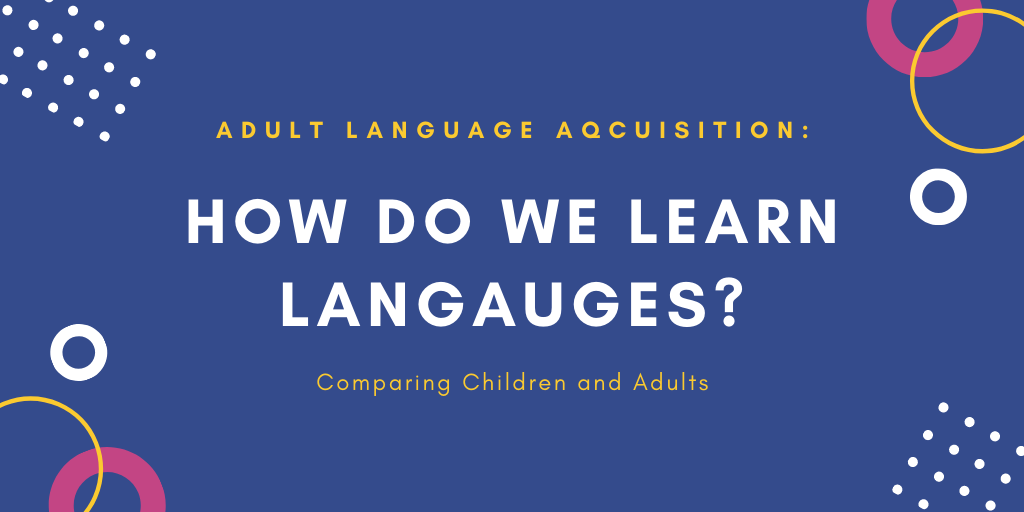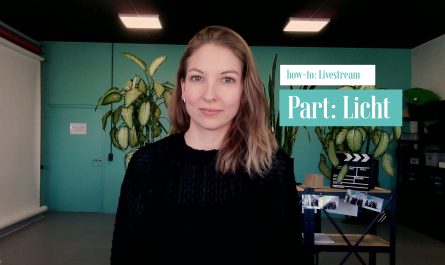Nowadays it is often expected that most people are supposed to speak at least one foreign language to be part of the global society. In Switzerland, for example, knowing at least two could be a basic pre-requisite for getting a job. However, how do we learn a language? Does the process of second language acquisition differ from that of our mother tongue?
According to scientists, main processes in language acquisition are always the same, regardless of whether it is your mother tongue or second language. Therefore, it makes sense to compare children and adults to better understand why we are having difficulties and to optimise the process of learning.
Two main processes children go through while developing their mother tongue are statistical learning and human interaction.
Statistical learning is an ability to extract statistical regularities from the environment to discover the world around us. For example, when a father says “apple” holding an apple in his hands, baby’s brain notes down possible relationships between the object and the word, and after a certain amount of repetitions it grasps that this round red thing in papa’s hand is an apple.
Listening and analysing, however, is only half the story. The second half, crucial to language acquisition, is the involvement of social language learning strategies – or human interaction. Without it no child, no matter how ingenious he or she is, will be able to communicate.
Well, if the processes we are going through are, essentially, the same, why is it so hard for adults to progress linguistically? There are several factors that differ for adults and children and influence these processes.
One of them is the mother tongue. That’s right – sometimes it is hard, not because your second language is poor, but because your mother tongue is too good. Humans think in a language, therefore, the more advanced the level of thinking the harder it is for them to express themselves at the intermediate level. The mother tongue also influences our understanding of grammar patterns, as our brains compare extracted generalities and patterns against those of our native languages: grammar patterns are like the railroads your train of thought is using. Switching from train to train is not easy and building additional railroads takes time.
As adults, we are used to equal relationships and communication on an equal level. That creates certain difficulties, as many vocabulary words and constructions can be too complicated for beginners and intermediate users. With babies, on the other hand, parents and teachers usually adapt their speech to fit that of the child – that restricts their use of difficult words and simplifies the constructions, which makes the speech significantly easier to understand. Not to mention the fact that parents usually correct the mistakes their children are making, which enormously contributes to the quality of babies’ self-expression.
Another factor influencing an adult’s progress is social sanctioning: adults quickly succumb to social pressure, often afraid of making a mistake or being laughed at. That significantly hinders us, especially at the beginning of the learning process, when speaking is crucial, while avoiding mistakes is almost impossible. Babies, on the other hand, keep babbling until they have the necessary constructions right.
The effort and the time adults require for the process also differ from that of a child. Babies improve effortlessly; their brains are like white paper ready to be drawn on – they accept the language “as is”, without questioning or comparing given constructs. Adults have to study consciously, since existing mother tongue patterns make the generalisation and analysis processes more difficult for their brain.
While we probably cannot do better than babies in the speed of new language acquisition, we can still apply various strategies to increase our efficiency and make the process more enjoyable. In my next blog posts, I will share my approach and techniques I use to speed up and enhance the learning process.
Now, could you tell me what were your difficulties while learning a foreign language? Did you learn it as a child or as an adult? Was there something you, on the contrary, enjoyed? Please, let me know in the comments below.
For my Russian readers: the content of this article is also available on Russian as an IGTV video here: https://www.instagram.com/tv/CBGL-Smjz1D/?igshid=xwcqnfqs7vh0




Hi Sabina!
At school I studied French. And yes, at school I studied as a child. We had a wonderful teacher, in love with the French language.
At a technical institute, I was the only one in an English group who studied French at school. And I just listened and didn’t understand much. I Translated technical texts with a dictionary.
I myself learned the programming language (English words?), and worked as a programmer. But she never spoke English.
And it has helped me now in learning English as an adult.
Studying English, I like that I recall technical professional terms, the names of my favorite punk and rock bands, the names of films pop up.
sorry for my english???
Hi Dzhamilia! Your English is great, no worries! ?
I’m glad that you had a wonderful french teacher – I believe lecturers are an important part of the learning process for children, who either boost the motivation or kill it completely. English classes at my primary school were quite boring, so I didn’t really progress much during my early years. ?
It is awesome that you know programming languages – I would love to learn one too someday.
Thank you so much for your comment and good luck to you on this hard way to the language proficiency! ?
I believe that any additional language is an asset! I don’t remember any difficulties of learning a language when I was little as I was more patience and curious. The only problem when you know so many language is that you might mix them in your head. I used to speak Danish and when I moved to Switzerland and started studying German, I was quite often confusing them because they are quite similar .
That is so true, Cerasela! There are often words I can’t remember, and sometimes I just replace them with German or English analogies. It has great drawbacks, though – nowadays I’m occasionally having difficulties when I speak Russian, even though it’s my mother tongue. ?
Interesting.. probably thats why bilingual children begin to speak very late.
For example I never learned. I just fell into the midst of native speakers.
Hi Alsou! That is a very interesting point. Unfortunately, I have never interacted with bilingual children during their early years, when language acquisition happens. However, it would make total sense that they need more time to start speaking, since they not only need to extract statistical regularities from the parents’ speech but also compare them against each other.
Hi Sabina. I am mother of two kids. Girl 7 y.o. and boy 2,5 y.o. and they already speaks in 4 languages: Russian because it is my native language, singala (sri lankan) because this is my husband language, English because we speak with my husband in English and French because we living in Switzerland (french part). We are do not learn them special, they cutch languages because they need it.
Thanks for that article. Good luck !
Wow, you have really gifted children, Mariya! The Greek philosopher Plato once said, that necessity is the mother of invention – sometimes the environment pushes humans to progress stronger than any self-motivation. ?
It is wonderful to see how globalization influences kids’ development – bilingual children are not a unique phenomenon anymore and maybe in the future, they will become the new “normal”. I would definitely love to see that! ?
Thank you so much for your comment and all the best to you and your family – hope your kids continue learning languages in the future.
Hi, Sabina. It was very interesting article, thank you for informationg )
Hi Julia! I’m very glad that you liked it ?
Спасибо, очень интересная информация! Согласна, привычка формулировать мысли так, как в родном языке усложняет процесс обучения, также социальные установки- страх публичной ошибки может мешают прогрессу в изучении языка. И каждый такой ” тормозящий” момент требует отдельного решения, даже выходящего за пределы собственно лингвистики ( психологические зажимы, лень в учёбе). Но, по моему опыту, даже располагая временем ( подобно ребёнку в детстве), изучая язык скрупулёзно, предметно, можно и не достичь высоких результатов. Если у ребёнка сама язык является одним из необходимых средств взаимодействия с миром, для взрослого человека такой ресурс как неограниченность времени может стать отрицательным фактором, если изучающий: не погружён постоянно в языковую среду, у него нет чёткой необходимости знать язык ( бизнес- цели, общение, учёба, переезд за границу), отсутствие мотивации не позволит достичь высоких результатов, совершенства. Это моё мнение. Чтобы выучить язык- нужна конкретная цель. Возможно, это индивидуально, и есть полиглоты, изучившие язык во взрослом возрасте, просто для расширения кругозора и ощущения себя ” человеком мира”. Наверное, есть предпосылки мышления, способности человека к изучению языков. В любом случае, информация, изложенная в данной статье, дала пищу к размышлению и хотелось бы дальнейшего развития темы, выбранной автором
Добрый день, Елена!
Абсолютно с Вами согласна – решение психологических проблем, если таковые имеются, могут существенно полиять на процесс общения с людьми на любом языке. Иногда, люди испытывают трудности в общении даже на своем родном языке – где-то, из-за застенчивости, где-то, из-за других проблем. Не разобравшись с причиной, процесс коммуникации всегда будет вызывать у человека трудности, независимо от того, как хорошо он знает язык.
Случаи лингвистической одаренности, конечно, имеются, однако, они достаточно редки. Учеными доказано, что интеллектуальный коэффициент не сильно влияет на скорость и качество усвоения языка, намного сильнее на них влияют упорство, практика и повторение.
Несомненно, языковая среда и цель тоже играют немаловажную роль в процессе изучения языков. Помимо этого, я верю, что методы, используемые при обучении, также могут существенно повлиять на качество полученных результатов. Например, когда я изучала английский и немецкий, мои первые иностранные языки, у меня не было определенной системы и прогресс был очень медленным. Однако, японский язык, например, дался мне намного легче, так как я опиралась на имеющийся опыт и использовала различные методики для повышения своей продуктивности. Сейчас, я могу достаточно свободно говорить по-японски, несмотря на то, что я не нахожусь в языковой среде и общаюсь только со своим учителем. Так что, я искренне верю, что мы все в состоянии освоить иностранный язык практически в любом возрасте.
Большое спасибо Вам за такой интересный и располагающий к размышлениям комментарий – надеюсь, Вы будете следить за моими статьями и дальше. ?
Hi Sabina,
ich erlaube es mir auf Deutsch zu schreiben, denn du sprichst bestimmt – unter anderem – auch Deutsch! Das Thema, dass du (dürfen wir uns duzen?) in deinem Blog angehst, ist höchst interessant und noch nicht genug – meiner Ansicht nach – erforscht.
Wie lernen wir Sprachen und die Unterschiede zwischen Erwachsenen lernen und bspw. Muttersprache erlernen.
Ich habe Deutsch schon im Erwachsenenalter gelernt, Englisch – in der Schule. Ich bin aber zweisprachig aufgewachsen- Russisch und Tatarisch sind – so sage ich immer, obwohl ich Russisch besser beherrsche – meine Muttersprachen.
Und die Unterschiede im Bezug auf Sprachenlernen – wie Kinder lernen und wie es Erwachsene tuen – sind gewaltig! Als Erwachsene lernt man “von oben nach unten” (Vygotskij)- das heißt gesteuertes Lernen mit grammatischen Strukturen, Schrift usw., was Kinder im Gegenteil erst überhaupt nicht angehen. Sie lernen eben “von unten nach oben” – eben intuitiv und mehr oder weniger nicht gesteuert, unbewusst. Und das Erlernen – wie wir es wissen – schon erfolgreicher, als das andere…Und ob es überhaupt möglich so ein ungesäuertes (Fremd)Sprachenlernen in das Erwachsenenlernen hineinzuziehen… Das ist die Frage! Aber Vielen dank für die Anregungen – das Thema solltest du vielleicht weiter in Betracht nehmen! Vor allem, weil du selbst so viele Sprachen sprichst!! Viel Erfolg!
Hi Leyla,
Natürlich, können wir uns duzen. Es ist wahr, dass viele linguistische Prozesse, wie auch andere Prozesse die in unsem Gehirn passieren, sind sehr oft nicht genug erforscht.
Weil wir als Erwachsene, zweifellos, von oben nach unten lernen, kann das auch unsere Superpower sein. Wenn Kinder unbewusst lernen, müssen sie damit sehr viel Zeit verbringen, um diese Strukturen selbst, statistisch und auch intuitiv, von dem Sprechen der Eltern zu extrahieren. Wenn wir, als Erwachsene, können uns sehr viel Zeit sparen, da wir bewusst Sprachen lernen können, wo wir diese Strukturen, wie Grammatik, von Anfang an bewusst studieren und mit eigener Sprache vergleichen können. Deswegen haben auch Leute, die eigene Sprache nicht studiert haben, später viele Schwierigkeiten beim Fremdsprachen lernen – da sie Fähigkeiten den Kindern nicht mehr haben und können die Superpower des bewussten Lernens auch nicht benutzen.
Obwohl mit Jahren geht Neuroplastizität unseres Gehirns nach unten, gibt es auch Beweise, dass wir es auch verbessern können, da je mehr wir etwas trainieren, desto besser wir darauf werden. Obwohl «natives Gefühl» Erwachsenen beizubringen wirklich nur in einigen Fälen möglich, gab es eine sehr interessante Studie in Kanada, die zeigte, dass Sprache nicht von IQ abhängig ist. Der Studie zeigte, dass wenn in anderen akademischen Fächern IQ wirklich einen großen Einfluss hat, die Sprachen kann man nur durch die Exposition, soziale Interaktion und Trainieren lernen. Für die Sprachen ist es wirklich «Übung macht den Meister». Wenn du Interesse hast, kannst du mehr dazu hier lesen.
https://www.inenglish.com.au/brain-plasticity-and-second-language-learning-how-does-your-brain-affect-language-learning/
Ich bedanke dich sehr für deinen herausfordernden Kommentar und hoffe, dass du weiter mein Blog lesen würdest.
Hi Sabina. I studied English in high school. After i finished, I could not speak at all. Firstly, I had no practice, and secondly, I was afraid to make mistakes. Once I met a man whom I really liked. He spoke to me in English. I was answering through a translator. It took me only one year of communication with an English-speaking person to start talking myself. It is not a perfect English, I make mistakes, but I have enough of this knowledge to lead a full life. Just think how easy to learn if you really need it! even when you are not a child anymore 🙂
Hi Natalia! Thank you so much for the inspiring story – your relationship is an excellent example of love breaking down the walls for people. ? I’m very happy to hear that the foreign language has enriched your life and wish you all the best on the way to language proficiency! ?
It was interesting to read! Thank you!)
Hi Natalja! I’m very happy you enjoyed reading it ?
Hi, Sabina!
I’ be been learning English as adult about 2 years. One of my problems is that I can’t use new words in my speech.
I know them and use while doing my exercises, but I never can recall them when I speak.
I’m looking forward to your next article about your personal experience. And I believe it would be quite useful for many other learners)
Hi Ekaterina! I’m very familiar with the problem – for me it’s also quite difficult to transfer new words from the passive to active vocabulary. I try to use them as much as possible during my speaking lessons, however, it usually takes hours of training before I can use new terms in a daily conversation.
Thank you for leaving the comment – I wish you best of luck in your studies and hope you’ll come to visit my blog again! ?
Hello Sabina, it was very interesting to read your blog and the information you provide is very informative and interesting. I never thought before about the process that i went through to develop my mother tongue. I believe that I have experienced a social sanctioning, when I was learning new foreign language. What about you?
Hi Ekaterina! I’m delighted to hear that you found the information interesting. Indeed, social sanctioning is a process that many adults find hard to deal with since we are not only influenced by the reactions of others, but also by our inner emotions.
In my teenage years, when I was an exchange student, I had to explain a lot of difficult school concepts in my basic (at that time) german. My classmates were very kind, supported me, and listened to everything I had to say, but sometimes I could see in their eyes that they could barely understand me. It discouraged me from speaking for a very long time, but I’m completely over it now and can speak german fluently ?
The learning languages is a very interesting topic. As a mother of bilingual child I am fascinated by processes happening in human brain while learning languages, especially in psycholinguistics. Thank you for this blog post. Looking forward to read the future ones!
Hi Elena! Thank you for leaving a comment! I find psycholinguistics to be a very intriguing field – observing the development of a bilingual child must be an infinitely amusing process ?
Hi, Sabina! I spoke 2 languages in childhood and probably this is the reason why learning english was easy for me at school. Now i learn french and i find it easy also. I enjoy the process and i try to speak using the words that i know. I guess enjoying the process is the main thing. And after doing grammar and learning something new i listen to a song, find the text, translate it, listen again, then i sing. That’s my favorite part of learning language:) I am waiting for your next article about your techniques:)
Hi Alsu! Thank you for your comment – I’m so pleased to see a similar-minded person who likes learning foreign languages ? It is very true, enjoyment significantly contributes to the study process – when we love something, our brain consciously and subconsciously gives that subject a priority. Therefore, singing songs and watching movies sometimes can bring better results than conventional learning methods ?
Добрый день, Сабина!
Я из России, хорошо владею английским (начал изучать в спецшколе), более-менее французским и испанским (изучал самостоятельно). Основная проблема у взрослых: это боязнь ошибки, то есть, психологическая проблема. Если брать по легкости изучения языков (из 3-х мною изученных): я порекомендовал бы испанский: слова произносятся, как пишутся, нет засилья неправильных глаголов. Была попытка овладеть немецким, он почему-то не пошел. Сейчас основная проблема – поддерживать языки, так как их знание никак напрямую не связаны с моей основной деятельностью. Стараюсь читать одну английскую книгу в месяц-полтора. Еще есть несколько интересных вещей связанных с вытеснением: например недавно я написал альбом своей любимой группы The Cure как Desintegration, друг на это обратил внимание, я удивился, но потом нашел, что на испанском Desintegracion (примерно), т.е. первый слог был вытеснен, иногда забываются названия предметов на французском, но помню на испанском. Еще могу сказать, что для детей лучше подходит аудиолингвальная методика обучения, для взрослых с гуманитарным складом ума коммуникативная, для технарей – грамматико-переводческая, но основное, повторяюсь, донести изучающим мысль: что главная цель научиться выражать свои мысли на иностранном языке, вне зависимости от количества ошибок и не бояться ошибаться. С ув.,
Добрый день, Максим!
Вы правы, очень тяжело поддерживать уровень владения языком без постоянной практики, поэтому я стараюсь говорить на каждом из доступных мне языков хотя-бы раз в неделю.
Как и Вы, я изучаю испанский – как раз посвятила карантин улучшению моего говорения и словарного запаса. Большое спасибо за такой интересный комментарий – надеюсь, Вы будете следить за развитием моего блога и дальше.